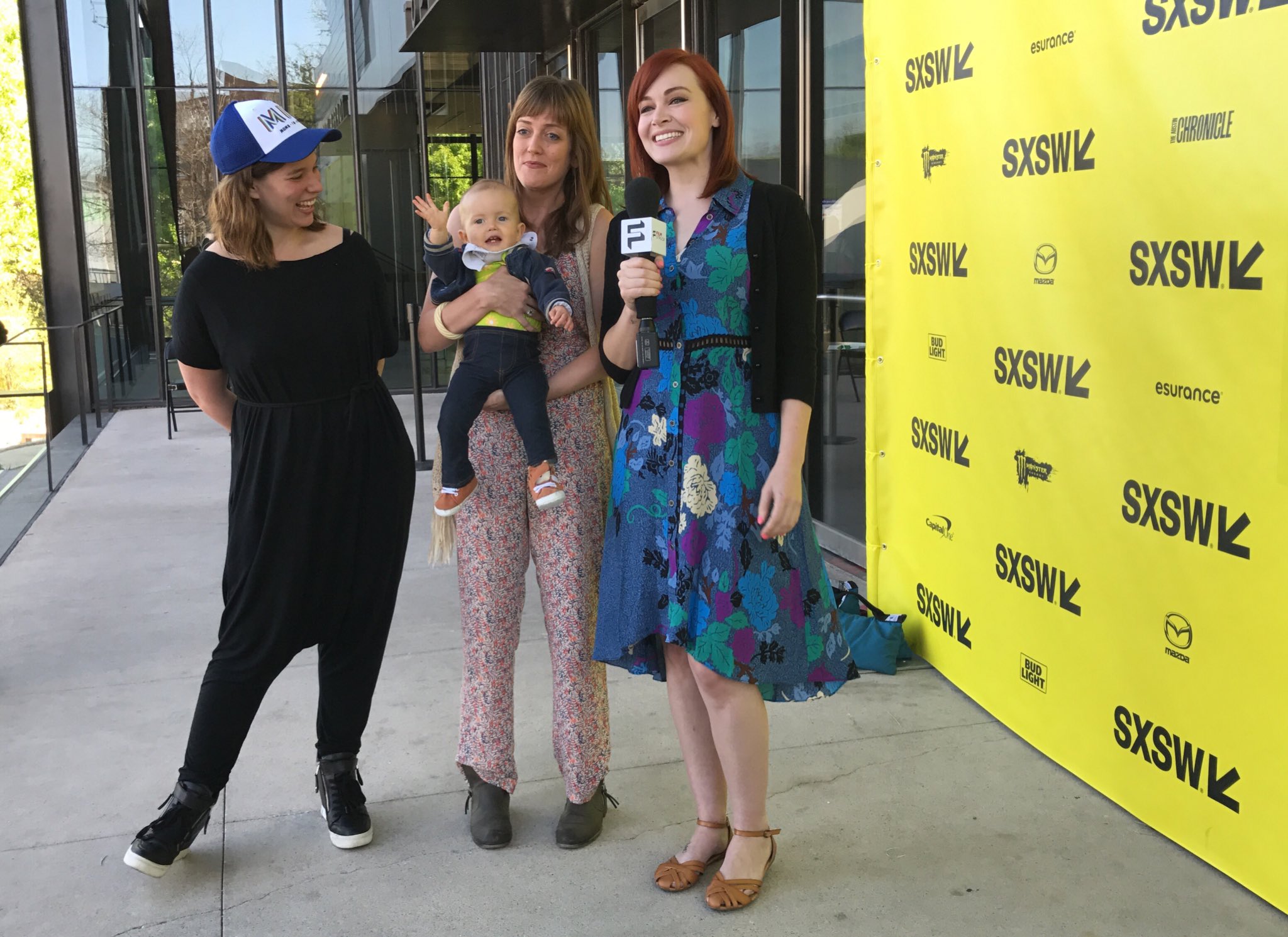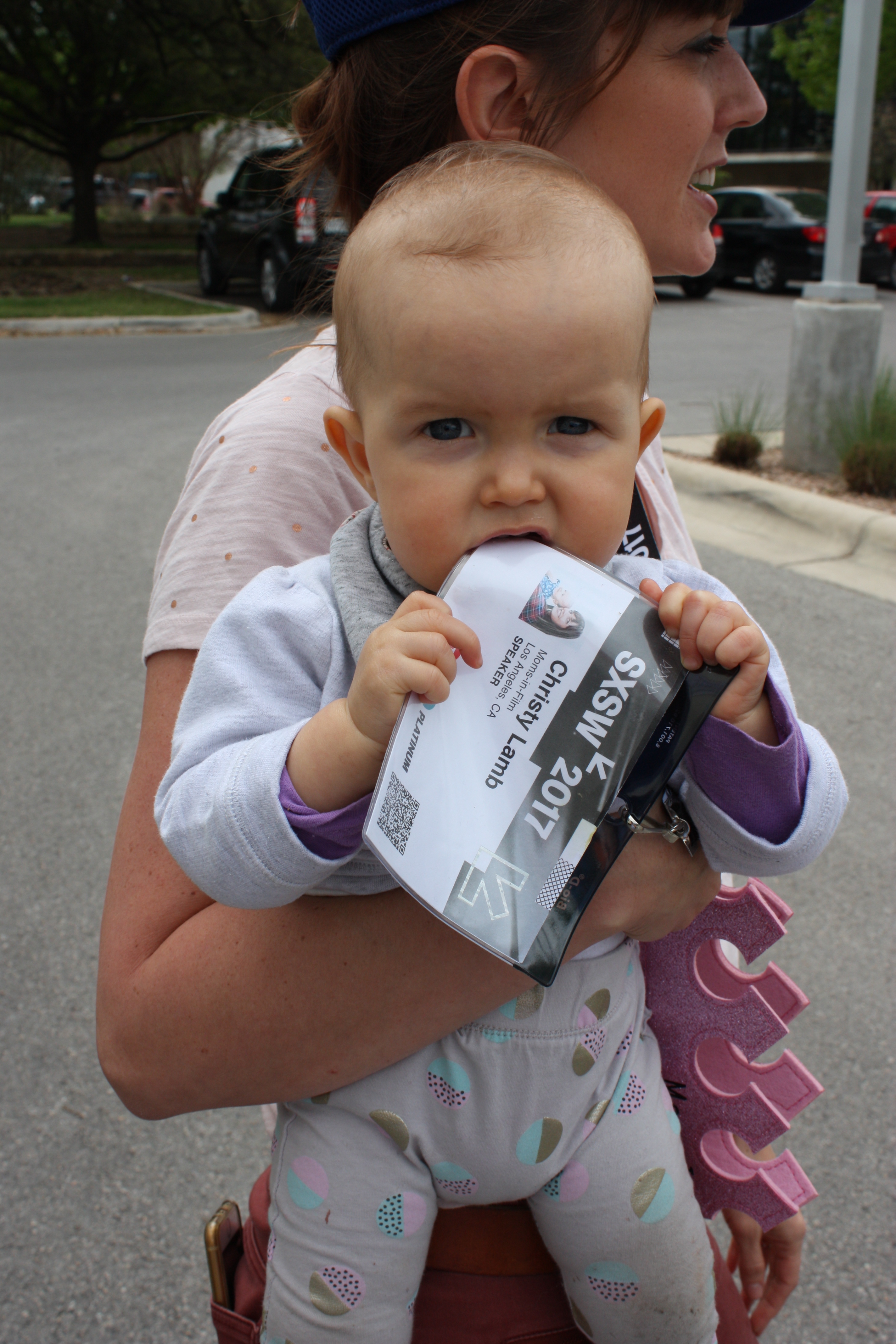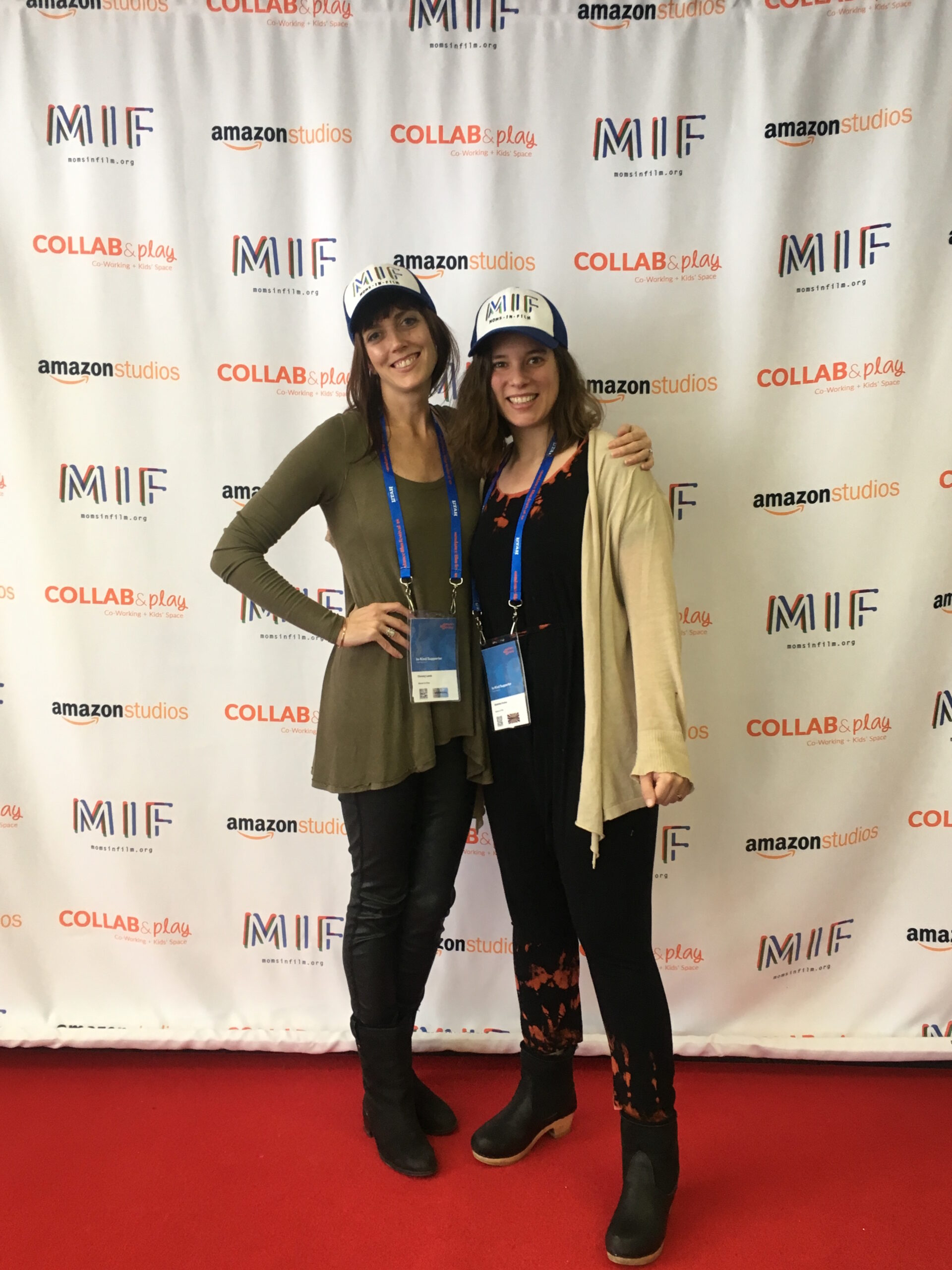
When actress Christy Lamb looked down at the plus sign on the plastic stick in her hand, she knew her career trajectory was about to change. What she held in her hand was either the key to her future or a signal that it was time to step aside, as so many mothers had done before. Christy decided on the former and we’re so glad she did.
Now with her nonprofit, Moms-in-Film, she is energizing the careers of parents in film and television across the globe, while still managing to secure the roles that feed her creativity. She also continues to search for funding and policy changes.
Mom.me spoke with Christy about what inspired Moms-in-Film and being a working mom.
How did Moms-in-Film come about?
I was in New York on set until I was about six months pregnant, and then decided to make the leap to L.A. When my baby arrived, a short film that I had produced won the jury award at SXSW. I was like, “Can you take a 2-week-old to a film festival?” It was tough to put all this work into something and then not be there for the payoff and the party, not to mention the meetings and potential next work that I was missing out on. I was literally up at night reading articles about what to do and what other women did. So, Mathilde, my co-founder in N.Y., and I started talking about how to formulate meetups. I just needed community.
What do you think is so important about community based on your experience?
I know this sounds weird, but I needed to know that other women had it bad. I needed a place to talk about what I was feeling. The whole thing was born out of a need for community and evolved into the nonprofit.

> I know this sounds weird, but I needed to know that other women had it bad.
What are the different obstacles for full-time moms vs. part-time in the industry?
Film and TV is made up of two camps. There are staffers or executives that have full-time jobs at studios on the lot. A lot of those places have HR and sometimes childcare on the premises. But if you’re freelance, you eat what you kill. You’re always looking for your next job. You might not have stable childcare and rely on your network to get your next gig.
Why is this organization so important, especially for freelancers?
We came into play mostly for freelancers. What they’ve found is that there is a 10-year gap between when you’re 25 and 35 where it’s troublesome to have a child because re-entering the workforce during those years is especially difficult. If you’re a college-educated woman, often you’ll come back, but you’ll never reach the level you could have. It’s integral to afford some support for parents in freelance gig economies, especially one where everything we write and portray becomes what we learn from and how we relate to mothers.
What are some of the things you are doing to help entertainment moms and the obstacles they face?
We are implementing a variety of strategies to help. Our Wee Wagon project provides mobile childcare so mothers can have on-set childcare and can attend festivals. By advocating for #budgetthebaby, we are encouraging filmmakers to create a line item in the budget for childcare.
How has the Wee Wagon project evolved?
Now we’re growing our other arm of the organization to help move into an agile, mobile childcare fleet of units that will be available for rental on set and on location for film production, emergency relief and beyond.

How did motherhood change the way you functioned in this business?
The stakes are raised. You have to be careful, but you can’t be too precious, either. You gotta get shit done.



